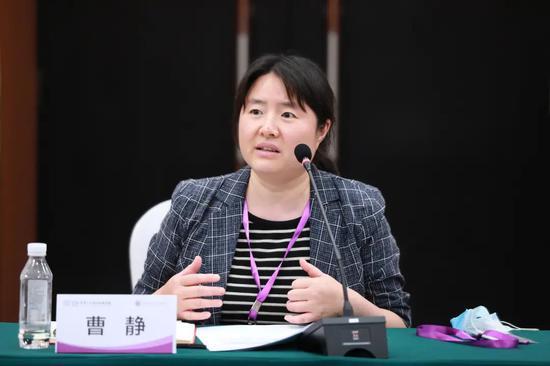Cao Jing: Considering Regional Development and Common Prosperity in Carbon Pricing Policy
Originally published in Chinese on June 29, 2021 by ACCEPT. Translated by ACCEPT. For the original Chinese article, click here.

On June 24th, the Tsinghua University School of Economics and Management and the Tsinghua University Institute of Global Development jointly held a seminar on China’s Carbon-Neutral Economic Policy in Beijing. A number of experts in the field of carbon-neutral research attended the seminar to engage in in-depth discussions on China’s carbon-neutral economic policy. Attendees included Bai Chong-En, Dean of the Tsinghua University School of Economics and Management and Executive Deputy Director of the Tsinghua University Institute of Global Development; He Kebin, Professor of the Tsinghua University School of Environment and Academician of the Chinese Academy of Engineering; Li Shantong, former Director of the Development Strategy and Regional Economy Research Department of the State Council Development Research Center; Qian Xiaojun, Director of the Tsinghua University Green Economy and Sustainable Development Research Center; Wang Can, Professor of the Tsinghua University School of Environment; Cao Jing, Associate Professor of the Tsinghua University School of Economics and Management and Researcher of the Academic Center for Chinese Economic Practice and Thinking (ACCEPT); Zhang Xiliang, Director of the Tsinghua University Institute of Energy and Environmental Economics; Xu Jintao, Professor of the Peking University National School of Development and Director of the Center for Environmental and Energy Economics at Peking University; Zheng Xinye, Professor and Dean of the School of Applied Economics at Renmin University of China; Ma Jun, Director of the Institute of Public and Environmental Affairs (IPE) and Guest Observer of the Ministry of Ecology and Environment; Lu Xi, Professor of the Tsinghua University School of Environment; Luo Yong, Head of the Department of Earth System Science at Tsinghua University; Qin Li from the Peking University School of Environmental Science and Engineering; and Jiang Kejun, Professor of the Energy Institute.
The first roundtable discussion, on the theme of “Opportunities and Challenges Under China’s Dual Carbon Targets,” was moderated by Bai Chong-En. He first delivered introductory remarks on “China’s Economic Growth Potential Under the Carbon Neutral Vision,” analyzing the contributions of capital, labor rate, and total factor productivity in China's economic growth between 1978-2019 and pointing out that over-investment in some areas has led to the rapid development of certain carbon-intensive industries. Under China's current carbon neutral targets, Bai Chong-En emphasized the need to carry out sound top-level design, formulate an effective carbon neutral economic policy, change the distortive investment phenomenon of the past, and prompt industries to improve quality and increase efficiency.
Cao Jing, a researcher at Tsinghua University's Academic Center for Chinese Economic Practice and Thinking (ACCEPT), moderated the second roundtable discussion on the topic of Economic Policy Tools for China's Carbon Neutrality.” She began with introductory remarks titled, “A Study of China’s Carbon Pricing Policy.” The presentation discussed the operation of global and Chinese carbon markets and the impact of carbon pricing policies on China under different scenarios. Professor Cao Jing suggested that more research and discussion are needed to address how China can design a broad carbon pricing policy while taking into account balanced regional development and common prosperity.
How to achieve China’s dual carbon goals is currently a common topic of concern across various academic fields, presenting a demand for interdisciplinary research. This seminar marked the official launch of the collaborative research platform between the Tsinghua School of Economics and Management and the Tsinghua Institute of Global Development on China's carbon-neutral economic policies. Moving forward, Tsinghua will give full play to this platform to produce high-quality results throughout academia and the think tank community.




